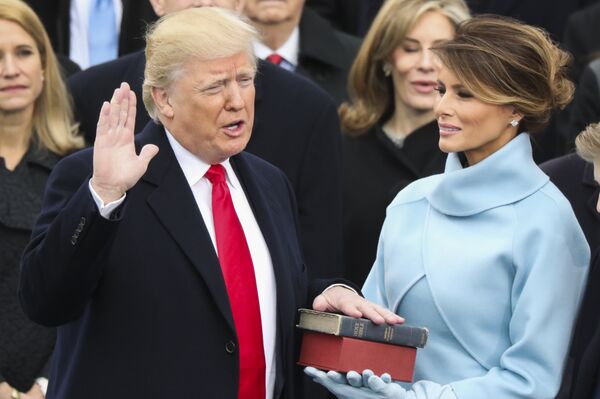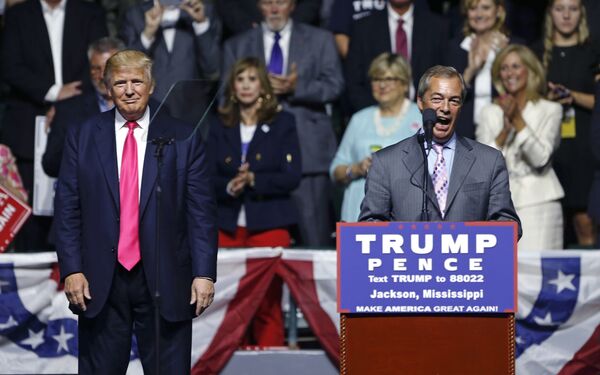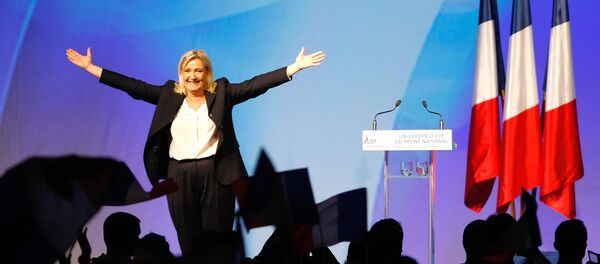In the editorial, the top German diplomat warned of "turbulent times" ahead for Europe.
Steinmeier stressed that "the old world of the 20th century is over for good," explaining that he was referring to the order established following the Second World War, and in the quarter century after the fall of the Berlin Wall and the end of the Cold War.
Steinmeier emphasized that "as always when power changes hands, there are uncertainties, doubts and questions about the course the new leadership will take," and warned that "in these times of a new global disorder it is about more; today there is a lot at stake."
The official indicated that of course Berlin would be seeking dialogue with the Trump administration, and would look to outline "our position, our values and our interests," as well as Germany's "expectations" for a new partnership with the USA. If that failed, he added, Berlin would be "certain to find interlocutors in Washington who know that big countries also need partners."
Openly favoring Hillary Clinton and shocked by Trump's surprise election victory in November, Steinmeier has been seen as one of the most outspoken detractors of Trump in the German government. Soon after the election, he warned that things would be "more difficult" for Berlin under a Trump administration.
Steinmeier wasn't the only one to outline his concerns with the new president. Vice Chancellor Sigmar Gabriel got in trouble Friday after he complained that Trump's inauguration speech supposedly came close to using Hitleresque language.
Warning Germans that they would be in for a "rough ride" under the new president, Gabriel blamed Trump's rise on the "serious radicalization of American society." Saying that Trump's inaugural speech featured "high nationalistic tones" with its "America First" pledge, Gabriel suggested that all that was absent were references comparing parliament to a "talking shop," a term used by Hitler in the 1920s before he took power to criticize the Weimar government. The vice chancellor argued that Brussels and Berlin must now join together to "defend our interests" and prevent this form of nationalism from spreading to the European continent as well.

Germany is preparing for federal elections in September amid a rise in the popularity of right wing parties. These parties have seen a dramatic wellspring of support recently due to Chancellor Angela Merkel's disastrous open door immigration policy, which resulted in over a million people from the Middle East and North Africa flooding into the country, leading to a dramatic uptick in crime, ethnic tensions, and other social problems. Trump called Merkel's policy a "catastrophic mistake."
The top German politicians' foreboding and critical remarks about the new president come on the heels of similar comments by other European leaders and politicians.
Valls suggested that "the only response to Trump must be unification of Europe, especially in defense and trade."
Some European political observers have since explained that the crux of the conflict between Trump and the Europeans is that for the first time since 1945, the continent faces the prospect of an American president who is opposed to European integration, or rather does not want to contribute American resources and effort toward its realization. A proponent of economic and political nationalism and sovereignty, Trump has repeatedly criticized the EU project, and praised the UK for its decision to exit the supranational union last year.

Taken further, Daniel Cohn-Bendit, the former leader of the Greens in the European Parliament, told the French newspaper Liberation that Trump's views may lead to a full-scale "economic and trade war between the US and the EU." The president has repeatedly indicated his opposition to free trade projects such as the proposed US-EU Transatlantic Trade and Investment Partnership (TTIP).



